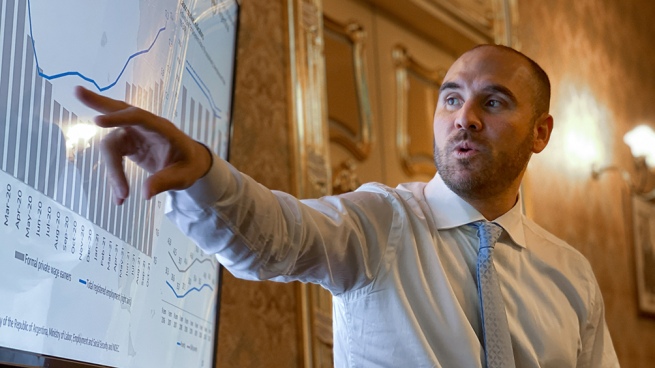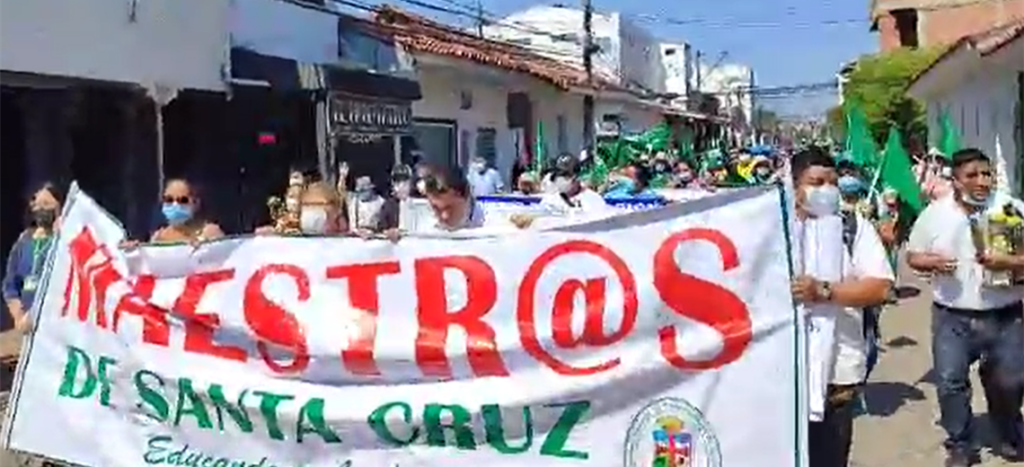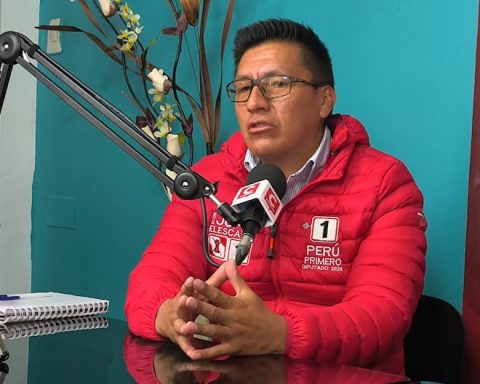The Minister of Economy, Martín Guzmán, affirmed this Friday that Argentina will increase its reserves by around US$6.2 billion in the short term, once the International Monetary Fund (IMF) makes the disbursements committed in the agreement to refinance the debt. of US$ 45,000 million contracted by the Government of Mauricio Macri.
These disbursements will enter the coffers of the Central Bank through US$ 7,000 million of Special Drawing Rights (SDR), which in exchange means US$9.8 billion, once the National Congress and the board of directors of the multilateral organization endorse the agreement signed between both parties.
“Discounting the maturities with the IMF in March and April, the reserves will increase by around US$6.2 billion thanks to the disbursement they will make once the agreement is approved in Congress and in the IMF board,” said Minister Guzmán during an interview this Friday on El Destape Radio.
Guzmán’s statements were given shortly before the formal entry of the memorandum of understanding to the National Congressto be discussed next week by the Chamber of Deputies for approval.
“It is the first time that an agreement with the IMF will have to be considered by the National Congress, through a law that we proposed”Martin Guzman, Minister of Economy
Precisely, the hoarding of reserves was defined by the minister as a substantial point to control inflation and gradually improve macroeconomic conditions.
“Reducing inflation is the main objective of macroeconomic policy and accumulating reserves is the starting point”Guzman explained.
After indicating that the inflation of February and March shows “signs of tension”, he explained that the first thing that is needed is “to calm expectations and there is no way to do it with a shortage of reserves”.
The minister assured that the IMF itself evaluated that the program provided for in the loan granted to the Macri government “failed”, and part of those disbursements ended in a “currency flight”.
“They also recognized that there should have been capital controls to prevent what happened from happening. There were no schools or hospitals left, only problems,” stressed the head of the Treasury Palace.
In this regard, he said that as the government “accumulates reserves” it will be possible to “adapt regulations for the entry of capital destined for the real economy, always discouraging everything related to speculative maneuvers.”
“It is the first time that an agreement with the IMF will have to be considered by the National Congress, through a law that we proposed. In addition, it is a different agreement from all the previous ones, not only in Argentina but in other countries,” he pointed out.
On this point, Guzmán was more emphatic: “This agreement does not have any of the conditionalities that we could call standard. There is no pension or labor reform, or privatization of public companies, or spending adjustments.”

As for the rate scenariostated that users who present situations of “greater vulnerability will have increases of 20%, well below the average salary variation.”
The rate focus in the segmentation proposed by the Government will be placed on the sectors of “greatest economic capacity, to whom subsidies will be eliminated”, while the middle sectors will have updates of “approximately 80% of the Salary Variation Coefficient of the last year”.
Regarding the economic policy actions that will be deepened, he emphasized “improving the financing profile by rebuilding the debt market in our own currency.”
The Minister, once again, clarified that there will be “no type of pension reform. We are only going to study some special regimes that benefit judges and diplomats.”
“The availability of foreign currency limits growth, therefore we need dollars to grow, always thinking of a more dynamic productive profile,” said Guzmán.
In relation to the quarterly reviews agreed with the IMF, explained that “in the case of failing any, we are always one revision ahead, therefore a disbursement would only be affected in the case of two consecutive negative revisions”.
Finally, the minister ruled out a possible increase in withholdings in the event of a rise in the price of cereals: “We have to strengthen the creation of trusts to cushion the effect of prices and we are working on that line.”

















